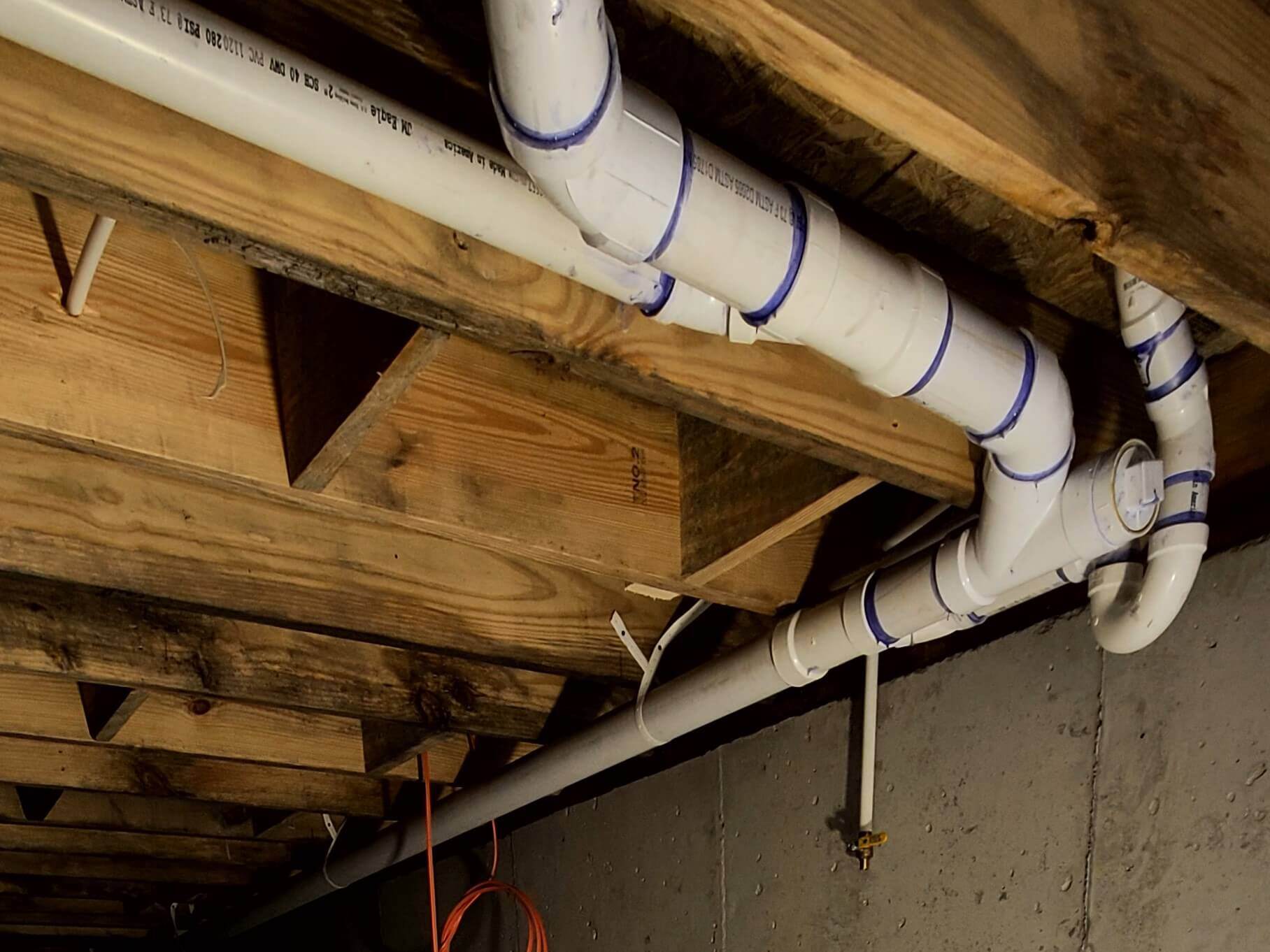Search for topics or resources
Enter your search below and hit enter or click the search icon.

Homes have a lot of interworking pieces. You need electricity, plumbing, heating, cooling, and many other elements to make a safe living environment. You're interested in spray foam insulation, but you're concerned about spray foam and your pipes. Is it safe to use spray foam around water pipes?
South Central Services has insulated hundreds of new and existing homes with spray foam. When we find insulation solutions for our customers, it is vital for them to understand how spray foam works and to have their questions answered. Customers often question the safety and wisdom of insulating pipes with foam.
By the end of this article, you’ll understand:
Don't have time to read right now? Check out everything you need to know at a glance.
Spray foam insulation will not cause any harm to your pipes. While the spray foam is created through a chemical reaction that generates heat, neither the reaction nor the heat harms the pipes.
Depending on where a pipe is located, we may spray around the pipe or directly against it.
If a pipe has been installed in a wall cavity, we spray directly against the pipe and encapsulate it. When pipes are "in the way" of the foam, they end up encapsulated.

Pipes that are not in the way of insulation are usually sprayed around. However, overspray on the pipe is no cause for concern.
Whether the pipe has spray foam surrounding it or adhered to it, the insulation will not cause any problems for the water pipe.
Sometimes, when we insulate a new construction home, we find pipes installed in exterior walls against the exterior sheathing.
This is a plumbing failure, no matter the type of insulation.
In the wintertime, these pipes are closer to the outside of the house than the inside. The likelihood of the pipe freezing increases dramatically. We would never spray against the pipe in these cases because the insulation could worsen this problem. The only chance of these pipes not freezing is the home's heat. If we were to spray against the pipes, we would insulate them from the home's heat.
When we come across this problem, we recommend relocating the pipe. No matter what insulation you use, the pipe itself runs too high of a risk of freezing.
Water pipe leaks are uncommon in newer homes. However, in the case of a water leak, pipes need to be replaced. If your pipe has been encapsulated with spray foam, that insulation will need to be replaced.
Replacing insulation due to a water leak is not unique to spray foam. A water leak will ruin any insulation, whether it is near the leaking pipe or adhered to it.
Spray foam can create an air barrier, preventing air from permeating the insulation. One type of spray foam, closed cell, can also create a vapor barrier. Closed cell spray foam at a depth of approximately 2 inches will prevent water in its gaseous state from permeating.
However, neither type of spray foam insulation can withstand water in its liquid state. Encapsulating a water pipe does not solve leaks or decrease the likelihood of a leak.
Spray foam is not harmful to pipes. The effect of spray foam is neutral, not positive or negative.
%20(T)%20(1).jpg?width=533&height=400&name=7.8.24%20Spray%20Foam%20(5)%20(T)%20(1).jpg)
You can have spray foam insulation installed around or on your water pipes. The chemical reaction and its byproduct of heat will not ruin or damage the pipes. Spray foam will also not increase the chances of a water leak.
If your pipes do leak, the spray foam insulation will need to be replaced just like any other insulation product. While some spray foam can stop vapor transfer, it is not waterproof.
Now that you understand why encapsulating your pipes won’t solve any problems or create any risks, your next step is to:
Disclaimer: While we strive to publish information accurate to building science, local building codes and standards supersede our recommendations.
Kilian has co-owned and operated South Central Services for 8 years. He is passionate about community involvement. In his spare time, he enjoys being with his family, playing ice hockey, and going fishing with friends.
Topics: